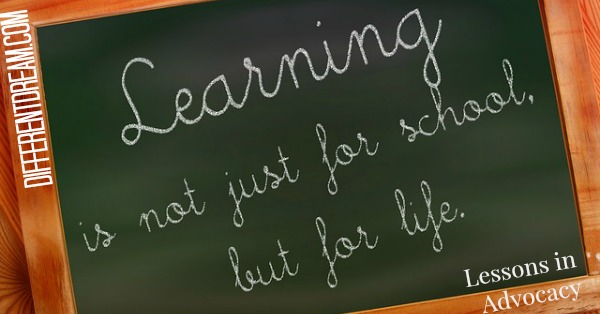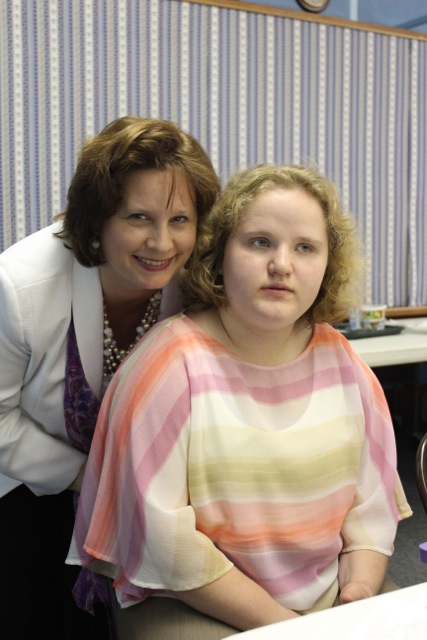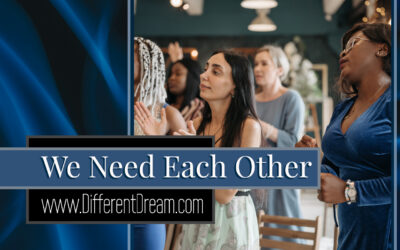3 Lessons for Special Needs Parent Advocates

Karen Jackson is the mother of 3 children, one of whom has special needs. She’s also the director of Norfolk, Virginia’s Faith Inclusion Network (FIN). She has lots of special needs experience and was surprised recently to learn these 3 lessons for special needs parent advocates.
3 Lessons for Special Needs Parent Advocates
As mom to a 17-year-old who has severe autism, I consider myself a seasoned advocate, in charge of IEP meetings, managing home care and medical care for my daughter. It isn’t often that I need to step up to advocate for my other two children, both intelligently gifted boys who are confident and successful at school and extracurricular activities.
But yesterday, I had to speak with my younger son’s teacher about some issues at school, trying to strike a balance between acceptable behavior in the classroom and the teacher’s understanding of his unique giftedness.
What my son’s teacher did not factor in, I am fairly sure, is that I am an experienced advocate. I walked into that meeting with research, notes and copies of emails. I was ready to protect my son from unfairness in the classroom and knew how to be prepared.
What did I learn? Well, mainly I learned that there is not much difference between advocating for my child with special needs and for my child who is exceptionally gifted. But here are 3 lessons for special needs parent advocates I learned in the process:
- Some teachers just do not see things the way we parents do, especially if they do not share our parenting experience.
My mama bear instincts are just as developed for my children who are gifted as with my child with a disability, maybe more so. During the whole meeting I wanted to scream: My son is amazing-he is thriving at home and school and also has the responsibility of being the sibling of a person with severe autism. His mom is usually very busy taking care of his sister, but even at 12 years old, he understands. He loves his sister unconditionally and deals with a lot of craziness at home. - Being different can take on many forms. We all need to be understanding, tolerant, and search out the best for our children. Educating those we feel do not understand our children is important and will pave the way for mutual respect. Once this mutual respect is established, critical and instructive comments will be more effective in any situation.
- As a parent and caregiver of a child with a disability, I often think that special needs parents like us are different. But maybe not so much. And perhaps we should take more opportunities to invite into our circle parents who have more typical parenting experiences. Because really, all parents need to advocate for their children at some point. We who parent children with disabilities may have a lot more experience and opportunities to advocate, but most parents love their kids and want to protect them at all costs.
As for our situation, all is well. I believe the classroom environment will be fine and hopefully the school year will end on a good note. I actually appreciated the chance to support my youngest son in this way, even though the meeting was slightly stressful. And I am thankful, upon reflection, for the opportunity to remember that we parents, regardless of our child’s strengths, challenges or differences are all just parents.
I am blessed with three wonderful, very different children whom I love very much. I know hundreds of other parents, some who have children with disabilities and some who do not. They would do just about anything for their children, just like me. I God’s blessing on all of us as we continue our parenting journeys.
What Advocacy Lessons Have You Learned?
What do you think of Karen’s 3 lessons for special needs parent advocates? Have you learned other lessons about advocacy from both your typical and special needs children? Share them in the comment box.
Do you like what you see at DifferentDream.com? You can receive more great content by subscribing to the quarterly Different Dream newsletter and signing up for the daily RSS feed delivered to your email inbox. You can sign up for the first in the pop up box and the second at the bottom of this page.

By Karen Jackson
Karen Jackson is the Executive Director of Faith Inclusion Network (FIN) of Hampton Roads where she lives with her husband and three children in Norfolk, VA. She is also the author of Loving Samantha. You can connect with Karen at the Faith Inclusion Network page.
Subscribe for Updates from Jolene
Related Posts
We Need Community while Parenting Kids with Disabilities and Special Needs
Sandy Ramsey-Trayvick explains how we need community while parenting kids with disabilities and special needs.
The Impact our Words May Have on the Children We Serve
With narratives from her past, Jolene demonstrates the impact our words may have on the children we serve.
Unexpected Grace Given and Received by Caregiving Parents
Looking at her difficulties differently led Karen Wright to experience the unexpected grace given and received by caregiving parents.






0 Comments